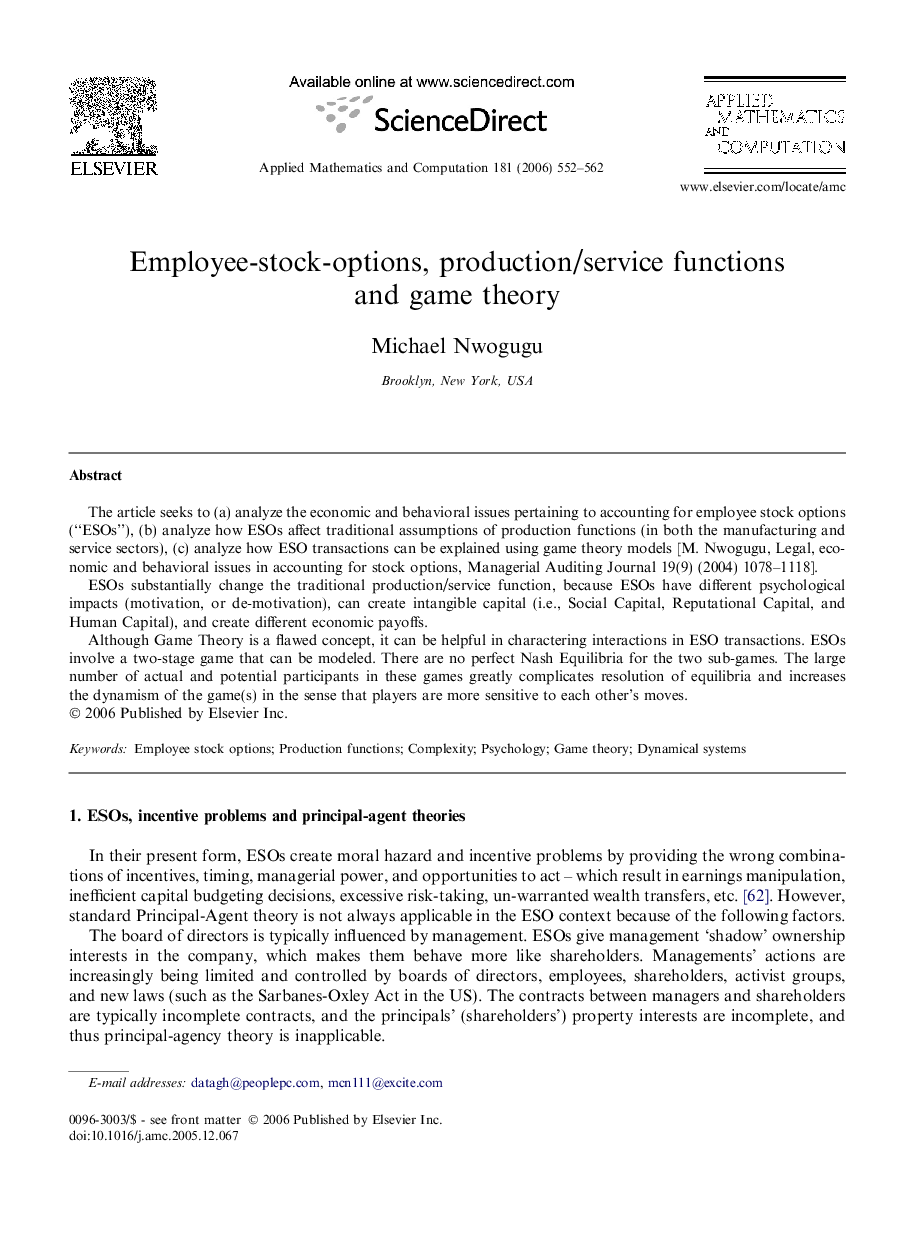| Article ID | Journal | Published Year | Pages | File Type |
|---|---|---|---|---|
| 4636131 | Applied Mathematics and Computation | 2006 | 11 Pages |
The article seeks to (a) analyze the economic and behavioral issues pertaining to accounting for employee stock options (“ESOs”), (b) analyze how ESOs affect traditional assumptions of production functions (in both the manufacturing and service sectors), (c) analyze how ESO transactions can be explained using game theory models [M. Nwogugu, Legal, economic and behavioral issues in accounting for stock options, Managerial Auditing Journal 19(9) (2004) 1078–1118].ESOs substantially change the traditional production/service function, because ESOs have different psychological impacts (motivation, or de-motivation), can create intangible capital (i.e., Social Capital, Reputational Capital, and Human Capital), and create different economic payoffs.Although Game Theory is a flawed concept, it can be helpful in charactering interactions in ESO transactions. ESOs involve a two-stage game that can be modeled. There are no perfect Nash Equilibria for the two sub-games. The large number of actual and potential participants in these games greatly complicates resolution of equilibria and increases the dynamism of the game(s) in the sense that players are more sensitive to each other’s moves.
